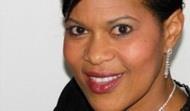HSJ’s BME Pioneers act as a reminder that people from black and minority ethnic backgrounds have contributed to British society for over a century, writes Yvonne Coghill
October is Black History Month in England, and now it is closely followed by HSJ’s annual BME Pioneers list, produced with NHS Employers, the NHS Leadership Academy and the British Medical Association.

‘The pioneers made me think a little broader about the contribution of people from BME backgrounds to our society’
The pioneers list highlights the achievements and accomplishments of black and minority ethnic leaders in the NHS – people that have gone over, above and beyond the call of duty to make a difference in the NHS for patients.
Every year, as far back as I can remember, we have celebrated the success and of the “famous five” – Martin Luther King, Mary Seacole, Nelson Mandela, Malcolm X – and, more recently, Barack Obama or Oprah Winfrey in Black History Month.
This is not to say that these remarkable individuals should not be lauded and applauded for their amazing accomplishments. I don’t think there is anyone who would not be in awe of what these incredible people have achieved.
This and HSJ BME Pioneers made me think a little broader and wider about the contribution of people from BME backgrounds to our society and beyond.
- See the HSJ BME Pioneers 2014
- Eleanor Smith: ‘The political will isn’t there anymore’
- More from BME Pioneers week
In memoriam
Last week, I bought my poppy, which I wear it with pride. This year, instead of the usual paper, one I bought a beautiful broach. Wearing my poppy and seeing other people wearing theirs made me think about the history of black people in the Great War
‘What is often forgotten is the number of BME soldiers who fought and lost their lives in the First World War’
The First World War started on 28 July 1914. This year marks 100 years since the war started. It’s sobering and incredibly sad to think that all the soldiers and people that took part in that war are now dead. The horror of that war is now kept alive through film footage, archive reports and memorials up and down the country.
The awfulness of First World War can never be underestimated and should never be forgotten: the squalidness of the trenches, the mind-numbing boredom, the expectation that you go over the top when told to, knowing that you would probably die, must have been hellish
It was a really dreadful time for Europe and the rest of the world. By the end of the war 9 million soldiers had been killed and 21 million injured. It was a tragedy of seismic proportions for the individuals, their families and the world.
Forgotten history
What is often forgotten is the number of BME soldiers who fought and lost their lives in that war: 1.5 million Indian soldiers volunteered and 800,000 went to the front. Of these, 48,000 soldiers lost their lives and 65,000 were wounded.
Military historian Gordon Corrigan said the role of the Indian army was vital to the war effort and, without them, the German army would have probably broken through the lines and reached strategically important ports. Hindhus, Sikhs and Muslims fought alongside the British army.
A further 16,000 men from the Caribbean fought on the side of the allies in the war. Jamaicans contributed two thirds of these men, and the remainder came from Honduras, Guyana, Barbados, Trinidad and Tobago, St Lucia and St Vincent. Of these, 1,200 men were killed and 2,500 were wounded.
Nearly 2,000 African-American soldiers also fought in the war. We must never forget these men who made the ultimate sacrifice to keep us free.
Soul searching
While looking up these fact and figures, I came across some startling stories – for example, the soul searching that had to be done by the British in sending black troops to fight against a white enemy.
‘Whether they are well known or work tirelessly in the NHS like the pioneers, this is a time to remember them’
Even in war the British felt that propriety had to be upheld and a hierarchy of race was a principle to be upheld. Interestingly, the French had no such reservations and deployed the men from their colonies without the same levels of angst.
Even though there was a degree of standardisation and regularisation in the structure of the army, inequalities in attitudes towards and treatment of the different races, classes and ethnic groups did exist. It was hard being black or Asian in the army: you were expected to fight the enemy on the outside but had to contend with slights, harassment and discrimination on the inside.
Problems of racism were found in the practical application of army regulations in an environment in which stereotypes of race and class were prevalent. Life was not easy.
Events and occasions such as Black History Month, HSJ BME Pioneers and Remembrance Sunday require us to reflect on the contributions of people from BME backgrounds to society. Whether they are well known, work tirelessly in the NHS like the pioneers or fought in war, this is a time to remember them.
Yvonne Coghill is senior programme lead for inclusion at the NHS Leadership Academy



























No comments yet